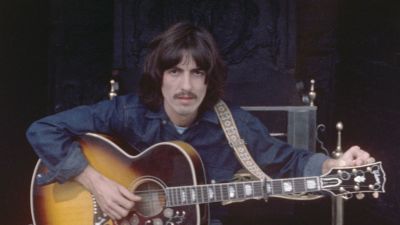George Harrison was far more than just “the quiet Beatle” – he was a musical innovator, spiritual seeker, and influential artist who left an indelible mark on popular culture. Born on February 25, 1943, in Liverpool, England, Harrison became the lead guitarist of The Beatles, a band that would revolutionize music and global youth culture in the 1960s.
From the band’s early days, Harrison demonstrated a remarkable musical curiosity that extended far beyond rock and roll. While John Lennon and Paul McCartney dominated the songwriting, Harrison began introducing Indian classical music, Eastern philosophy, and unique instrumental techniques into The Beatles’ sound. His fascination with Indian culture led him to study the sitar with Ravi Shankar, dramatically influencing the band’s experimental period during albums like “Rubber Soul” and “Revolver.”
After The Beatles disbanded in 1970, Harrison embarked on a successful solo career that showcased his exceptional songwriting abilities. His triple album “All Things Must Pass” is widely considered one of the greatest post-Beatles solo releases, featuring the iconic hit “My Sweet Lord.” The album revealed Harrison’s depth as a composer and his ability to create spiritually resonant music that transcended typical pop structures.
Beyond music, Harrison was a committed humanitarian and philanthropist. He organized the groundbreaking Concert for Bangladesh in 1971, one of the first major charity concerts that raised significant funds for global humanitarian aid. This event set a precedent for future benefit concerts and demonstrated his commitment to using his platform for positive change.
Harrison was also deeply spiritual, embracing Hinduism and exploring Eastern philosophical traditions throughout his life. His interest in meditation, transcendental philosophy, and personal growth profoundly influenced his music and worldview. Songs like “Within You Without You” and “Isn’t It a Pity” reflected his spiritual contemplations.
As a guitarist, Harrison pioneered techniques that would influence generations of musicians. His fluid, melodic style and innovative use of different instruments set him apart from his contemporaries. He was among the first Western musicians to extensively incorporate Indian musical elements into rock music.
In his later years, Harrison continued creating music, formed the supergroup The Traveling Wilburys, and remained an influential cultural figure. He battled cancer courageously and passed away on November 29, 2001, leaving behind a legacy of musical innovation, spiritual exploration, and humanitarian work that continues to inspire artists worldwide.


Recent Comments